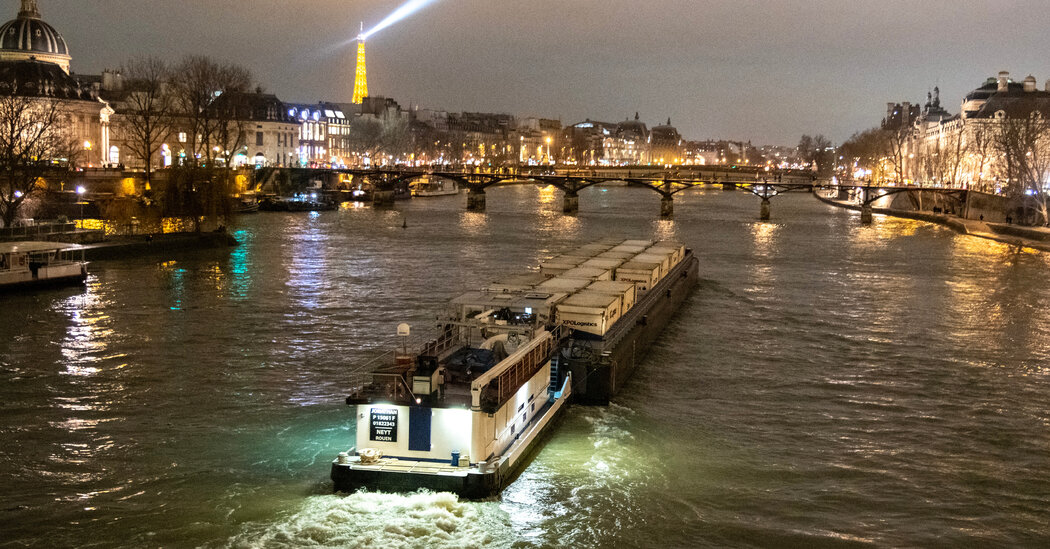- cross-posted to:
- [email protected]
- [email protected]
- cross-posted to:
- [email protected]
- [email protected]
As pale morning light flickered across the Seine, Capt. Freddy Badar steered his hulking river barge, Le Bosphore, past picturesque Normandy villages and snow-fringed woodlands, setting a course for Paris.
Onboard were containers packed with furniture, electronics and clothing loaded the night before from a cargo ship that had docked in Le Havre, the seaport in northern France. Had the cargo continued by road, 120 trucks would have clogged the highways. Using Le Bosphore and its crew of four prevented tons of carbon emissions from entering the atmosphere.
“The river is part of a wider solution for cleaner transport and the environment,” Captain Badar said, his eyes scanning other vessels carrying wares up and down the Seine. “But there’s much more that we could be doing.”
As the European Union steps up its battle against climate change, it needs to decarbonize freight transport, responsible for a quarter of global greenhouse gas emissions.
To get there, it is turning back to a centuries-old solution: its rivers. With 23,000 miles of waterways spanning the European Union, officials see a huge potential to help take trucks — the biggest source of freight emissions — off roads. The European Green Deal, the European Union’s decarbonization blueprint, would turn rivers into highways and double barge traffic by 2050.



I know America transports a lot of stuff by train and that EU has a ton of passenger trains. Does the EU do a lot of freight by trains like the US in addition to passengers? Also, I’m assuming yes, but I wonder if the emissions are lower for a freight boat vs train or truck.
I really don’t understand how transporting by water is better for the environment vs by train. Electric barges just aren’t a thing.
Freight trains though slow down passenger rail a lot which is a priority in Europe, and so those trains usually run on different routes and at night. Essentially, a good passenger rail network is kinda bad for the freight trains.
Electric barges are a thing and the only thing more energy-efficient is bulk carriers. Steel on steel has much lower resistance than rubber on asphalt but still doesn’t compare to steel on water.
But a train won’t need a battery like boats do.
Depends, there’s plenty of non-electrified track, and it’s not always economically viable to electrify.
Both are large enough to use flow batteries and the likes, though. Ships are even better at carrying tonnage but already trains can get by with non-lithium tech.
This gave me an idea: Trolley-barge!
They used to use horses on shore to pull barges up the river. Overheat wires for a barge would be fun, but impractical.
As soon as a given route gets long enough, batteries on-board become the way.
I don’t think this is about barges vs. trains, but simply trying to reduce the number of trucks.
boats are insanely efficient energy wise, and you need to build and maintain way less infrastructure for a waterway (the water is already there after all). even if you are burning fuel instead of going electric, you gain so much efficiency that it is still worth it. also, electric everything has different environmental costs